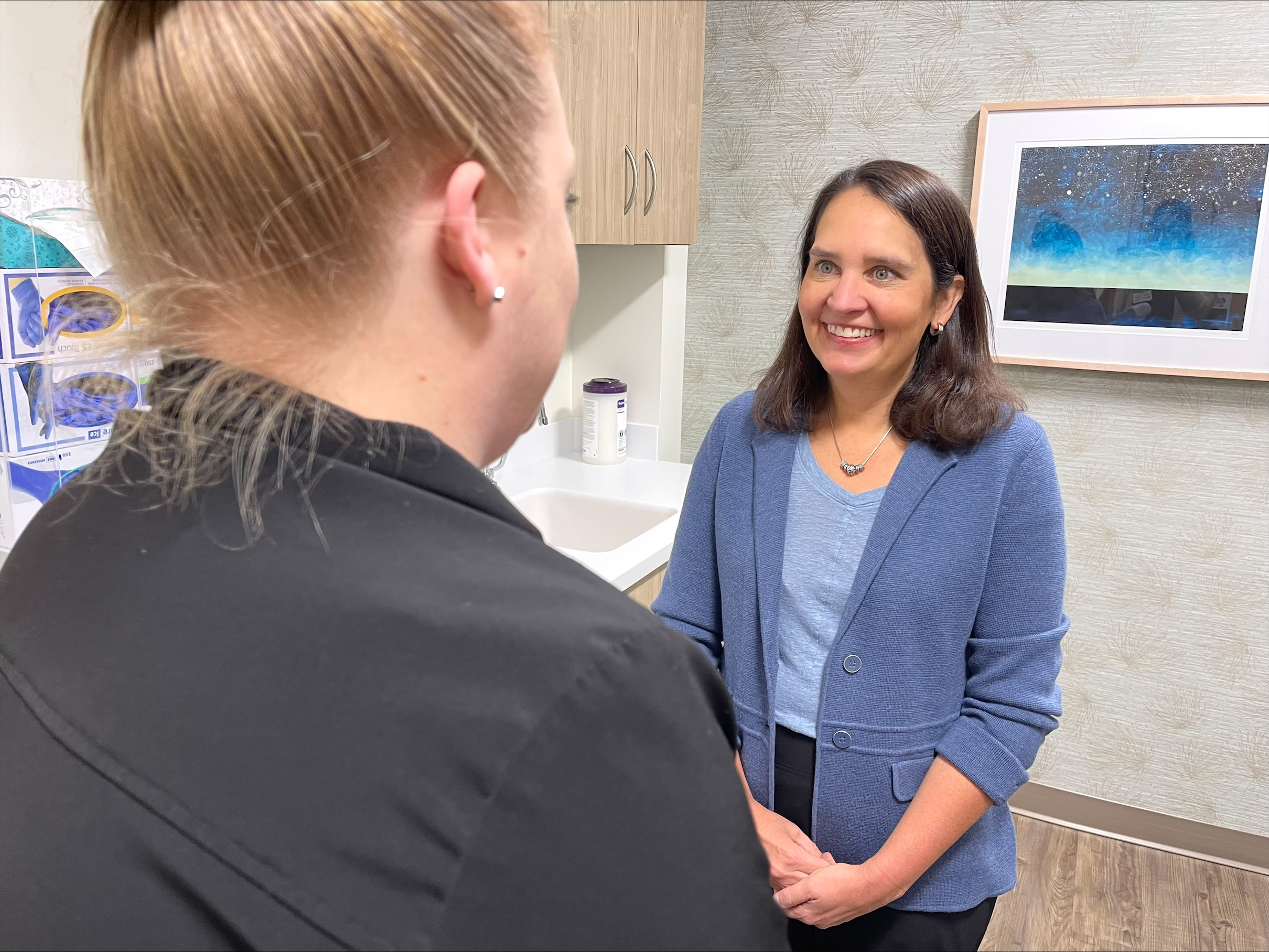Demystifying Menopause
What Everyone Should Know
10/30/2025

Dr. Aimee Van Straaten, Aspirus OB-GYN
Every day, approximately
6,000 women in the United States reach menopause. That’s more than two
million every year. Yet, for something so common and universal, many people
don’t really know much about it.
“Everyone probably
knows someone going through menopause,” said Dr. Aimee Van Straaten, OB-GYN at
Aspirus Health. “Understanding it more not only helps you support your mom,
grandma, or friend, but it also prepares each woman for her own journey.”
Medically, menopause
is defined as one year without a menstrual period. That marks the point when
the ovaries decrease their production of estrogen and progesterone, and
ovulation has ceased. For most women, this transition happens between ages 45
and 55, with the average being around 51.
Hot
flashes are the most well-known symptom, affecting nearly 80 percent of
women. Other common symptoms include:
- Mood changes and
irritability
- Memory or attention
issues
- Joint pain
- Hair loss
- Vaginal
dryness
- Painful
intercourse
- Sleep
disturbances
These changes can
disrupt daily life. However, women no longer have to just quietly endure them.
“There have never been more options to manage menopause symptoms than there are
today,” Dr. Van Straaten emphasized. “Honestly, it’s a great time to be an older
woman.”
Providers at Aspirus
Health are continuing to advance their knowledge in this area. Many are
completing additional education focused on menopause and midlife women’s
health, helping ensure that patients receive the best, most up-to-date care
available.
The gold standard
remains hormone therapy, which can relieve hot flashes and night sweats in
about 85
percent of women who use it. Estrogen is the primary hormone, with
progesterone added for women who still have a uterus.
“There is still some
fear around hormone therapy because of negative publicity from 15 to 20 years
ago,” explained Dr. Van Straaten. “But women shouldn’t let that hold them back.
Today, there are many safe and well-studied treatment options.”
Advances like
transdermal estradiol, absorbed through the skin, allow for more stable hormone
levels with less risks than older oral medications. Non-hormonal options
include fezolinetant, which targets the brain’s temperature-control center, and
SSRIs, which help reduce hot flashes.
For women who
haven’t yet reached menopause, there are plenty of ways to prepare. “Focus on
good sleep habits, exercise regularly, and maintain healthy weight,” Dr. Van
Straaten said. “It’s also important to build strong bones. Get enough calcium
and vitamin D, include resistance training in your routine, and if you’re over
40, add extra protein to your diet to help preserve muscle mass.”
Understanding
menopause is also key to supporting the women around you. Recognizing fatigue,
irritability, or mood swings as symptoms can help you respond with patience and
compassion instead of frustration. “It’s a major life transition, both
physically and emotionally,” Dr. Van Straaten explained. “Your support will go
a long way.”
Ultimately,
menopause is a milestone to celebrate. The symptoms can be challenging, but
this phase marks the start of a new chapter, earned through years of growth,
wisdom, and resilience. “Every woman who reaches menopause has lived a lot of
life,” Dr. Van Straaten said. “We should treat it as a badge of honor.”
If you’re
experiencing any symptoms of menopause, talk to your primary care provider.
Menopause is typically diagnosed based on a woman’s history and symptoms.
Seeking medical guidance helps you face menopause informed, supported, and
ready.

Back to all Posts